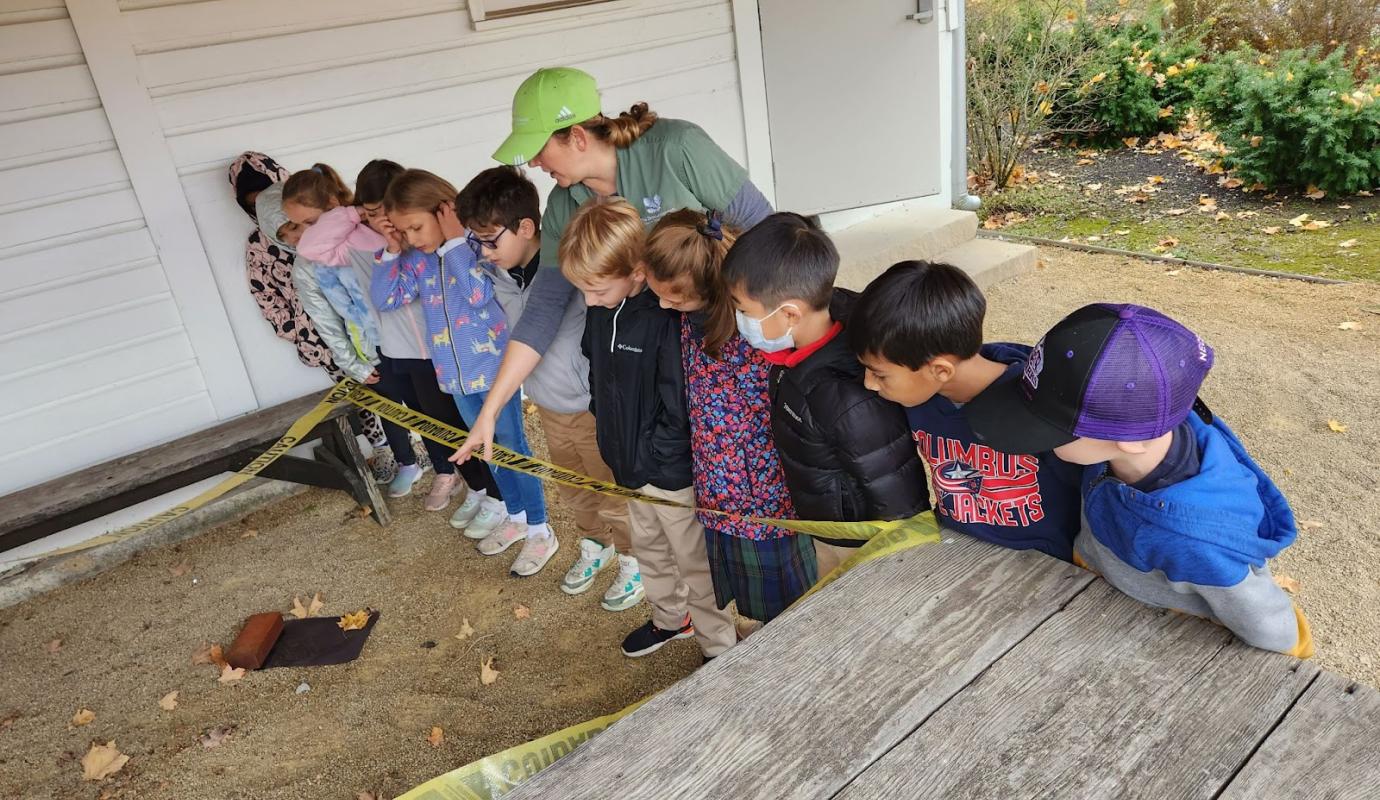Nami Stager P ’30 ’32, lower school science specialist
What do you remember most about your school days?
The time you spent with peers?
The experiences that ignited your passions?
Chances are some special moments included a day away from school…on a field trip!
Be Curious. Field trips are a cornerstone of the science curriculum in lower school. Whether students are watching a glassblowing show, holding macroinvertebrates from a pond, taking night hikes, exploring wetlands at a metro park, or rock climbing, these experiences connect what is happening at school to the outside world.
Be Ambitious. Students can access tools and environments not available at school. Though there are amazing opportunities within our walls, there are some things that can’t be recreated in a school space. Whether it is taking a closer look at an ecosystem, touching and interacting with insects and arthropods not native to Ohio, using special technological tools like digital microscopes, or seeing and touching historical and technological objects, each experience away from campus solidifies the learning in a classroom and supports important scientific phenomena.
Just this year, lower school students took ten science field trips off campus. Some of those included Dawes Arboretum, The Works, Scioto Audubon Metro Park, Glen Helen Outdoor Education Center, Highbanks Metro Park, and Battelle Darby Creek Metro Park.
Be Empathetic. A study by Education Next conducted at the University of Arkansas found that students who participate in field trips show increased empathy, tolerance, and critical thinking skills. This study also showed that students are more likely to adapt to new environments throughout their lives after these field experiences during their younger years.
Be Yourself. Carylann Assante, executive director of Student & Youth Travel Association (SYTA) and SYTA Youth Foundation, seconds the notion that real-world exploration outside the classroom can bolster students’ critical thinking skills and confidence. “Today’s students are visual learners, and a field trip lets them touch, feel and listen to what they’re learning about, which helps them build on classroom instruction, gain a better understanding of topics, build cultural understanding, and expose them to worlds outside their own to gain confidence.”
Be Responsible. Students that visit unique places off campus learn that they have a responsibility to take care of the world around them. Whether it is picking up litter, taking a bike ride instead of a car, or using reusable bottles and bags, they feel empowered to make small changes that can positively impact the world around them. It also helps them better understand civic responsibility and take pride in our state for all it has to offer.
Science field trips are a multi-sensory learning experience that can bring one-dimensional lessons to life and create enthusiasm for a subject that is hard to replicate through other media. As teachers, it’s our duty and responsibility to provide these experiences for our students.
Field trips are meaningful experiences that allow us to take learning beyond our school walls. A field trip is a way to complement the work you are doing in the classroom by allowing you to engage with an expert in the field or to have first-hand experience with a subject matter.
